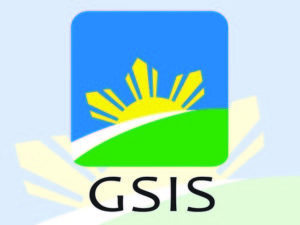The topics below may be relevant to your daily activities, especially those which involve business law, labor law, and other legal areas of your business.
Business Law and Labor Law Updates
What is Insider Trading?

The Philippine Constitution provides that the State recognizes the role of peace and order, protection of life, liberty, and property, and the promotion of the general welfare in the exercise of the people of the blessings of democracy (Article 2, Section 5 of the 1987 Constitution). Along with the promotion of democracy is the establishment of free market and protection of effective market competition. In view thereof, Republic Act No. 8799 (RA 8799) or The Securities Regulation Code was enacted to establish a socially conscious, free market that regulates itself, encourage the widest participation of ownership in enterprises, enhance the democratization of wealth, promote the development of the capital market, protect investors, ensure full and fair disclosure about securities, minimize if not totally eliminate insider trading and other fraudulent or manipulative devices and practices which create distortions in the free market (Sec. 2 of RA 8799).
Republic Act No. 7699 or The Portability Law as a Remedy of an Employee Who is Not Qualified for Benefits under the SSS Law or GSIS Law

Private employees are mandated to be members of Social Security System (SSS) while Government Employees are to be members of Government Service Insurance System (GSIS). When private employees stayed as such until they retire, they can get retirement benefits under SSS provided they meet other qualifications provided by law. The same goes for government employees under GSIS law. What if, a private employee shifts to work as government employee? How can she/he claim retirement benefits? Republic Act No. 7699 or The Portability Law provides the answer for such situation.
Understanding the Principle of Indivisibility of Stock Subscription

The Principle of Indivisibility of Stock Subscription is enunciated under the relevant portion of Section 62 and Section 63 of the Revised Corporation Code of the Philippines or Republic Act No. 11232. Said provisions provide:
“Section 62: x x x Shares of stock so issued are personal property and may be transferred by delivery of the certificate or certificates indorsed by the owner or his attorney-in-fact or any other person legally authorized to make the transfer. No transfer, however, shall be valid, except as between the parties, until the transfer is recorded in the books of the corporation showing the names of the parties to the transaction, the date of the transfer, the number of the certificate or certificates and the number of shares transferred. XXX”
Section 63. Issuance of stock certificates. – No certificate of stock shall be issued to a subscriber until the full amount of his subscription together with interest and expenses (in case of delinquent shares), if any is due, has been paid.” (Emphasis Supplied)
Salient Features of Republic Act No. 8291 or the Government Service Insurance System Act of 1997

The Government Service Insurance System (GSIS) is mandated to provide government employees benefits that will ensure their social welfare, and to provide assistance in their financial needs in life. The law aims to provide safeguards in case contingencies in life happen to GSIS members. The GSIS is the counterpart of SSS with regard to government employees. R.A. No. 8291 provides similar benefits to government employees equivalent to benefits provided to private employees by R.A. No. 11199 or the New Social Security Law.



I needed to thank you for this good read!! I certainly enjoyed every bit of it. I have you book marked to look at new things you post
Lovely just what I was searching for. Thanks to the author for taking his time on this one.
Your place is valueble for me. Thanks!…
There’s certainly a great deal to know about this issue. I love all the points you
have made.